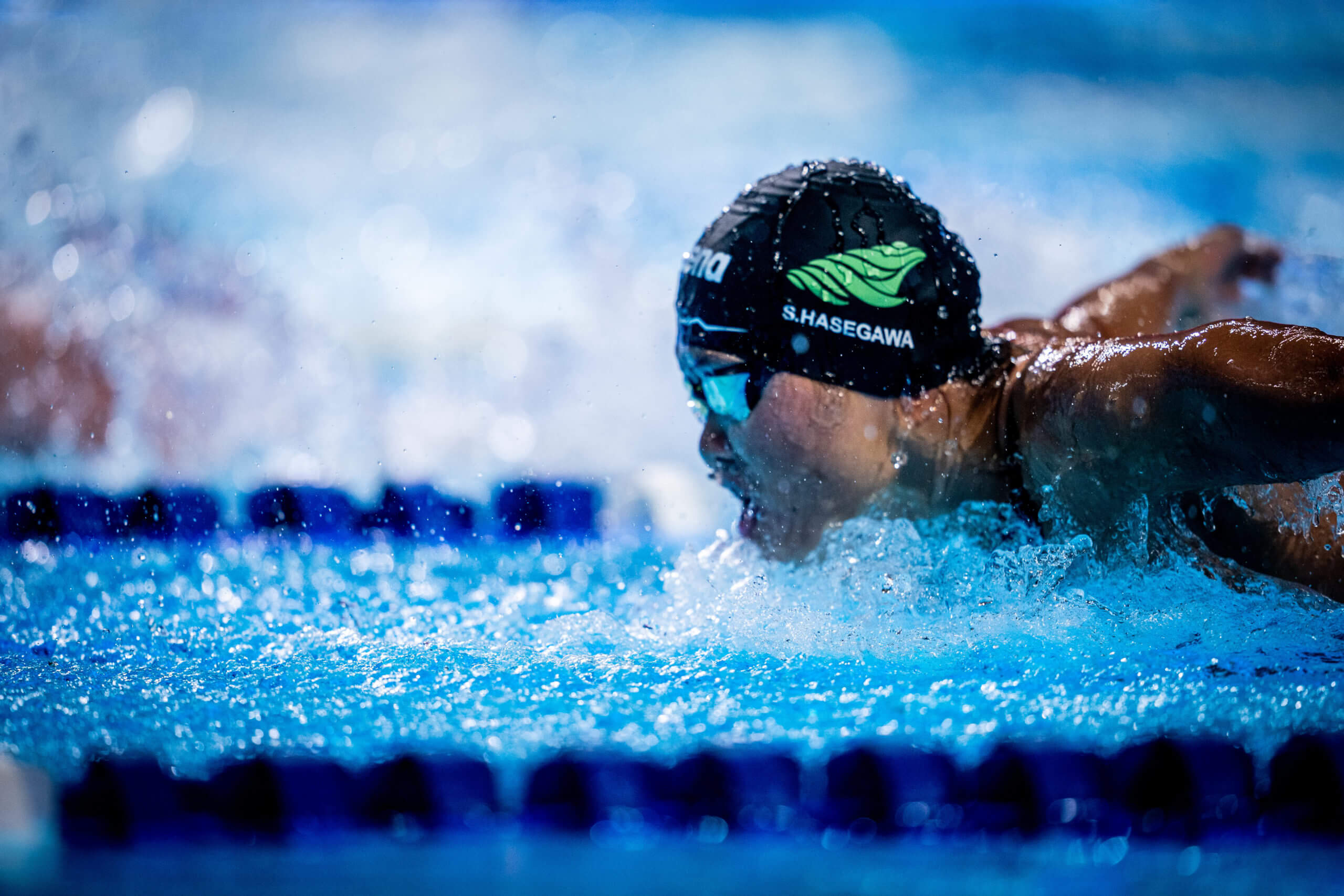Entering Second ISL Match, Kosuke Kitajima Impressed by Tokyo Frog Kings

Entering Second ISL Match, Kosuke Kitajima Impressed by Tokyo Frog Kings
When the idea of a Japanese team in the International Swimming League arose last year, Kosuke Kitajima’s task was clear. In conversations with ISL founder Konstantin Grigorishin, both men knew that for the ISL to live up to truly “international” billing, it would need a foothold in Asia and a bridge to the deep well of Japanese talent.
Showcasing Japan’s best swimmers was the lodestar Kitajima followed in building what would become the Tokyo Frog Kings. And the early returns, after Tokyo’s first ISL match last week, are immensely positive.
“First and foremost, thinking about how we really started from nothing virtually six months ago, it’s truly amazing that we were able to bring a team together to Hungary to compete, and I really am honored to have been able to bring these swimmers together and compete here,” Kitajima told Swimming World Wednesday, via a translator, from inside the Budapest bubble. “It’s a feat in itself. My impression is that all the swimmers are enjoying themselves. … It was important for me to bring the best team possible as well, and I’m quite confident I was able to bring the best of the best on this team.”
From the results of ISL Match 3, held last Saturday and Sunday at Duna Arena, the rest of the league’s eyes are open to that talent. The Frog Kings finished second to the LA Current in their debut, amassing 506.5 points and giving the Current (535.5) a battle until the skins race. The performance puts the Frog Kings in a strong position to qualify for the semifinals and possibly make a run to the finals.

Suzuka Hasegawa of the Tokyo Frog Kings set the ISL record in the women’s 200 fly in her debut; Photo Courtesy: Mine Kasapoglu/ISL
Tokyo returns to action in Match 5 this Saturday and Sunday, tangling with the Current, DC Trident and London Roar. They have a tough go in Match 7 against London Roar (winner of Match 1) and the Cali Condors (champion in Matches 2 and 4).
Kosuke Kitajima is pleased with the first performance. Tokyo’s success is built on the roster’s Japanese core: 22 of 31 swimmers (10 men, 12 women) hail from Japan. None have ISL experience, with the only Japanese swimmer in the inaugural season Daiya Seto, who bowed out of Season 2 for personal reasons.
The Frog Kings were strategic in doling out international spots to athletes with ISL experience (Russia’s Vlad Morozov, American Leah Smith, Canadian Markus Thormeyer) or seasoned veterans like Bruno Fratus. But the team is overwhelmingly composed of Japanese swimmers in their first ISL campaign.
That brings a slew of adjustments. Japanese swimmers, unlike those from other countries, are familiar with the team concept from the country’s university system and regional competition. But competing with swimmers from all over the world is new. And being immersed in the professional, swim-focused environment that is the bubble is new to everyone.
So far, they’ve proven more than up to the task.
“Japanese swimmers are in a very top position in the world,” Kitajima said. “In that way, it was quite imperative that many of our top swimmers are Japanese. Especially after this first race, I felt that a lot of our Japanese swimmers see the potential of what ISL could become. Although we have a long way to go in terms of working with the federations of the various nations, we do believe this is something that’s worth doing, and by participating, it was the first step to expressing their belief in ISL.”
The Japanese contingent has pushed into a top spot in ISL quickly. Through four matches, the Frog Kings’ Japanese swimmers boast 21 times in the top seven of 17 different individual events. And it’s not even just the names – like Ryosuke Irie and Kosuke Hagino – that casual Olympics watchers would recognize.
Suzuka Hasegawa impressed most, setting the ISL record in the women’s 200 fly at 2:03.12. Hagino holds the top time in the men’s 400 individual medley, where he’s the reigning Olympic champ, and Katsuhiro Matsumoto is the pace-setter in the men’s 200 freestyle. Irie (men’s 100 back), Yui Ohashi (women’s 200 IM and 400 IM) and Takeshi Kawamoto (men’s 50 fly) are each second in events. The Frog Kings women’s medley relay also has the second-fastest time of the ISL’s first two weeks.
With so many first-timers and young stars, Kitajima sees the experience as a vital part of swimmers’ professional development. It’s particularly valuable given the home Olympic Games looming this summer and the pitched competition for spots at those Games.
Kosuke Kitajima knows firsthand the importance of such competition. The four-time Olympic gold medalist and breaststroke world-record holder swam at four Olympics after a career spanning nearly two decades. The 38-year-old was a renowned racer. The prospect of him in an event like breaststroke skins is tantalizing.
The ISL stands apart from what he experienced in his career. But if something like the league existed during his career, Kitajima thinks he would’ve certainly availed himself.
“For me, it was always about excelling as an individual and performing as an individual swimmer,” he said. “You represent your country, but I do believe if there was an opportunity for me to be in such a league, I believe it would’ve been great to make myself known the world over about my performance and about myself. I would’ve really been excited and very likely into racing in this league.”
.jpg)
- ISL WEBSITE
- SEASON 2 SCHEDULE
- EUROPEAN ROSTERS
- AMERICAN ROSTERS
- TOKYO & TORONTO NEW ROSTERS
- CBS TV AGREEMENT
- MATCH ONE RESULTS (CONDORS, ENERGY, CURRENT, BREAKERS)
- MATCH TWO RESULTS (ROAR, IRON, TRIDENT, CENTURIONS)
- MATCH THREE RESULTS (CURRENT, FROG KINGS, TITANS, CENTURIONS)
- MATCH FOUR RESULTS (CONDORS, IRON, BREAKERS, TRIDENT)
- MATCH FIVE RESULTS (ROAR, CURRENT, FROG KINGS, TRIDENT)
- MATCH SIX RESULTS (ENERGY, TITANS, BREAKERS, CENTURIONS)
- MATCH SEVEN RESULTS (ENERGY, IRON, TITANS, TRIDENT)
- MATCH EIGHT RESULTS (CONDORS, ROAR, FROG KINGS, BREAKERS)
- MATCH NINE RESULTS (ENERGY, FROG KINGS, IRON, TITANS)
- MATCH TEN RESULTS (CONDORS, CURRENT, ROAR, CENTURIONS)
- SEMI ONE RESULTS
- SEMI TWO RESULTS
- GRAND FINAL RESULTS



